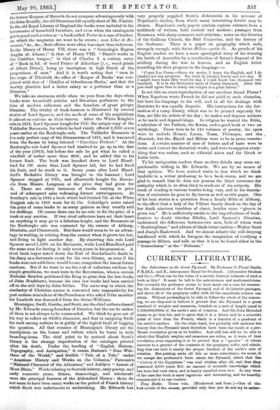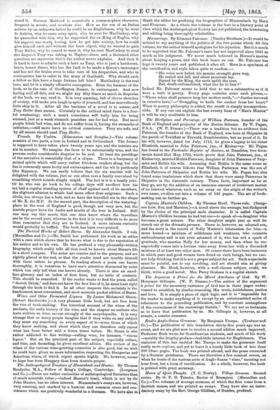stand it. Norman Maitland is essentially a common-place character, frequent
in novels, and nowhere else. How as the son of an Italian actress by an unknown father he could be an Englishman, why he went to Antrim, why he came away again, why he seat for MacCaskey, why he quarrelled with him, why he supported the ex-King of Naples, why his support was wortli having, how he got into society, how he could give himself such airs without the least object, why he wanted to gain Tony Butler, why he ceased to want its why he sent MacCaskey to steal the despatch Tony was taking to Naples—these and a thousand other questions are mysteries which the author never explains. And then it is hard to have to admire such .a hero as Tony, who is just a handsome, brave, honest dunce, who has the lack to be made a Queen's messenger and has not the brains even to take care of his despatches, and who in consequence has to enlist in the army of Garibaldi. Why should such a fellow as this have a large fortune left him ? MacCaskey is the real hero, and he is a simply offensive conception. Even the humour of the book, as in the case of Sheffington Darner, is extravagant. And now having said all this, and we might say fifty times as much in dispraise of the book, we say, read it. It is very amusing, fall of clever sketches of society, will make you laugh in spite of yourself, and has marvellously little skip in it. After all the business of a novel is to amuse, and Tony Butler does amuse. Certainly to the critical mind there is a fear- ful awakening; such a man's conscience will bully him for being amused, just as a weak stomach punishes one for bad wine. But most people drink bad wine, and do not suffer from it, having the stomachs of ostriches,—still more have no critical conscience. They are safe, and by all means should read Tony Butler.































 Previous page
Previous page